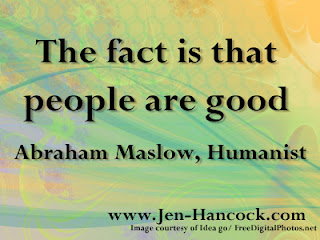In a recent conversation with a friend, I said something offhand that stuck with me: “I got about 75% of my to-do list done today—and I feel really good about that.”
That simple statement captures a core lesson I’ve learned as a humanistic business leader: you don’t have to do everything to be successful. In fact, trying to do everything is a recipe for burnout—not just for you, but for your relationships, your community, and even your business. Giving your best 75% might just be the most productive and sustainable thing you can do.
The Myth of 100%
There’s a lot of pressure in the business world to give “110%” all the time. Hustle harder. Sleep less. Achieve more. But human beings aren’t machines—and when we treat ourselves like we are, we break down. Constant overdrive isn’t sustainable. And it’s not actually necessary.
Some of the most important things I do in a day—like making a healthy meal, having quality time with my family, playing a video game, or chatting with a friend—don’t show up on a productivity chart. But they make me a better business leader, a better thinker, and a more grounded human. They help me show up better for the 75% of work I do choose to tackle.
Working Sustainably Is Working Strategically
I work for myself. I have no boss threatening to fire me if I don’t check off every item on my list. That freedom has taught me something powerful: Many tasks simply don’t need to be done. Ever. Some can wait. Others vanish entirely when left alone for a few days.
The real trick is learning to discern. Every morning, I look at my task list—not to ask what I can cram into the day, but to decide what I’m not going to do. I pare it down to what’s truly meaningful and manageable, based on the time, energy, and obligations I have that day. That includes making time for myself and others, not just my business.
This is how I avoid burnout. It’s also how I do higher-quality work.
Systems That Support, Not Control
I’m still organized. I keep lists, use task trackers, and make sure nothing truly important gets forgotten. But those systems exist to support my work—not to guilt me into overworking.
I’ve also learned to say no. To projects. To requests. To distractions that don’t align with my priorities or capacity. Saying no isn’t failure. It’s focus. It’s choosing what matters most.
The 75% Rule
So here’s my philosophy: Give your best 75%. Be intentional. Be kind to yourself. Prioritize rest, relationships, and joy alongside business goals. You may leave some money on the table. But you’ll gain something far more valuable—your health, your clarity, your creativity, your sustainability.
And you’ll be better not just for your business, but for your family, your community (I volunteer at the zoo!), and the world around you.
You don’t have to do it all. Just do what matters—and do it well. You can thrive if you don't burn out. Save 25% - for joy.
#WorkLifeBalance #HumanisticLeadership #SustainableSuccess #AvoidBurnout #TimeManagement #DoLessBetter #HumanismInBusiness #MindfulProductivity









